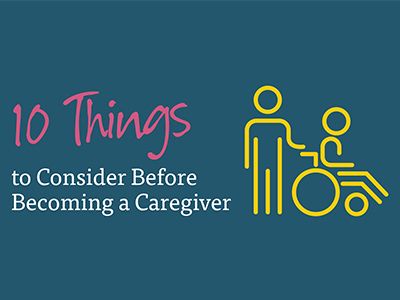If you want to take that first step in understanding (and advocating for) the long-term care needs of a parent, child, family member or friend – and aren’t sure where to start, here are some ways to get the caregiver conversation going:
- A family gathering can be a good opportunity to discuss important details about caregiving needs. Make sure the conversation stays positive and everyone has a chance to be heard – especially the person you’re caring for.
- Or make some time for just you and your loved one, where you can sit down without interruptions and discuss some of these issues that may have been put off because of busy schedules and prior commitments.
- Often a routine doctor visit or seeing an article in the paper can serve as the starting point for a non-intrusive discussion about caregiving needs.
For the person that’s facing these issues, ask them what their needs and concerns are. You can initiate the discussion by asking, “If your health starts to change, what can I do to keep your best interests in mind?”
Here are some other questions that you can ask during the discussion:
- What is your financial situation? This includes knowing where checking and savings accounts are held, as well as if any financial planning has been done to deal with a long-term care situation.
- Do you have a durable power of attorney? This document gives someone else decision-making power if the loved one becomes incapacitated. Everyone needs to know who can write checks and who is responsible for paying bills and manage finances when it’s needed.
- Do you have a health care power of attorney? Who will make medical decisions if your loved one is unable to do so? Does that person know he or she is responsible and the loved one’s preferences?
- Do you have a living will? Different from a health care power of attorney, this document spells out a person’s wishes about medical and life-sustaining procedures. Who has been named? Does he or she know the person’s wishes?
- Is there a plan in case you become incapacitated or can no longer care for yourself? Does the person have preferences on where he or she will go? Has any financial planning been done to manage this possibility?
- Do you have a will? While this can be one of the toughest questions to ask, simply knowing where the will is located and who is responsible for managing the estate can save everyone some stress.
This will give you a starting point for putting together a long-term care plan that best represents your loved one’s wishes and empowers you as a caregiver.



